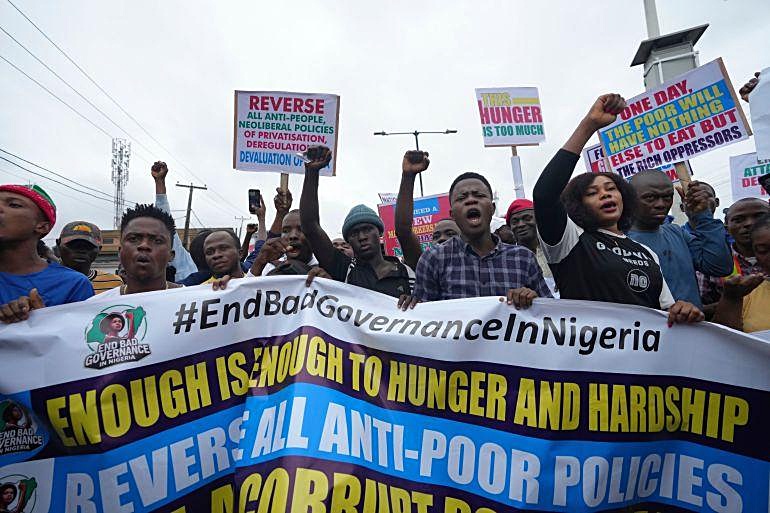FRANCIS IWUCHUKWU reports that legal professionals have expressed their disapproval of recent court injunctions that restrict the movement of #Endbadgovernance protestors in some states and the FCT.
Senior lawyers have criticized the recent court rulings that imposed restrictions on Nigerian citizens who are currently demonstrating against bad governance in the country.
These lawyers argue that the restrictive orders are unnecessary and would be difficult to comply with. Furthermore, if the orders are breached, they cannot effectively be enforced.
Access to Justice, a rights organization, has raised concerns about the rationale behind a restrictive order issued by a Lagos High Court just two days before the #Endbadgovernance protest was scheduled to begin nationwide. The High Court, upon granting the Attorney General of Lagos State’s ex-parte motion, implemented restrictive orders against the protestors.
According to the order, protestors were limited to two designated locations in Lagos State, namely Gani Fawehinmi Freedom Park, Ikorodu Road, Ojota, and Peace Park, Ketu, between the hours of 8 am to 6 pm.
However, Access to Justice criticized this ruling, stating that it raises questions about the judiciary’s impartiality and independence. The organization argues that such orders undermine fundamental principles of judicial power and internationally recognized rights.
Access to Justice Convener, Joseph Otteh, stated in a signed statement that the court is making substantive orders that determine how individuals can exercise their rights without granting them the right to be heard. Otteh emphasized that such action violates the fundamental principle that every person is entitled to a fair hearing before any orders are made against them. Additionally, the court restricts the exercise of fundamental rights without sufficient legal justification.
In response to the court rulings, lawyers argue that there was no specific law cited or made that would justify curtailment of the exercise of a constitutional right. They point out that even if such a law existed, the court would be required to assess its justifiability in a democratic society. The failure of the court to engage in this legal analysis raises concerns about the arbitrary nature of the restrictive orders.
The issue of restrictive orders was not limited to Lagos State. Similar orders were granted in Ogun State and the Federal Capital Territory (FCT). In Ogun State, the High Court restricted protestors to four designated locations and limited the protest hours. Similarly, in the FCT, protestors were restricted to the MKO Abiola Stadium. These court orders have also been met with criticism from legal professionals.
Inconvenience and Lack of Enforcement
Legal experts argue that enforcing these restrictive orders would be highly challenging. They question how authorities could effectively enforce compliance, especially if the protestors peacefully move away from the designated locations. The risk of escalating tensions and potential violence is also a concern.
Amidst these criticisms, it is observed that the government chose to seek court orders through ex-parte applications to confine citizens to specific locations in their attempt to express grievances. However, legal professionals highlight that the government should focus on ensuring the protection of citizens’ rights to peaceful protest, rather than seeking limitations through court orders.
Senior Advocate of Nigeria (SAN), Dr Abiodun Layonu, emphasizes that issuing court orders in such cases is unnecessary and would be difficult to enforce. He argues that arresting protestors who peacefully move away from the designated locations could exacerbate the situation. Layonu also points out that maintaining security and preventing violence during protests is primarily the responsibility of the police.
Femi Falana (SAN) similarly faults the government for resorting to court orders on the eve of protests. He highlights issues with serving court orders on unknown persons and emphasizes that the government should be held accountable for any violence that occurs during protests.
Overall, legal experts express disappointment with the court rulings and suggest that the government should have focused on protecting citizens’ rights to protest rather than restricting them to specific locations.
Discover more from Tension News
Subscribe to get the latest posts sent to your email.

